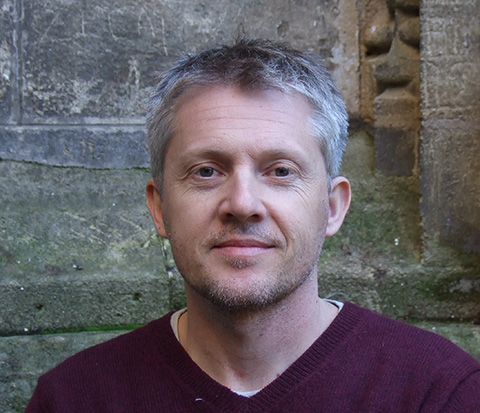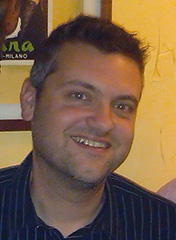New careers as writers
June 12, 2013
John Poch ('00 Ph.D.) was studying nuclear engineering — and he was miserable. John Poch ('00 Ph.D.)
John Poch ('00 Ph.D.)
"I found myself reading and writing stories and poems rather than studying my differential equations," he says. "I knew I had a problem."
So, he switched his major to English, got a master's of fine arts at the University of Florida and decided to complete his education in creative writing at UNT. Poch has since seen his work published in Ploughshares, The Paris Review and The New Republic and is now professor of creative writing at Texas Tech University.
Many students in UNT's creative writing program, like Poch, are coming from other careers and want to achieve a lifelong goal of writing a novel or collection of poems. They find that the program's faculty and workshops make them stronger writers.
Amos Magliocco ('02, '03 M.A.), senior lecturer of English, says he's written since he was a kid,
but he didn't take it seriously as an adult until he left a job in the private sector.
He had written six short stories. Amos Magliocco ('02, '03 M.A.)
Amos Magliocco ('02, '03 M.A.)
When he came to UNT, he quips, "I learned that I hadn't."
Magliocco says the program is very collegial and he appreciated the accessibility of faculty members Barbara Rodman, associate professor of English, and Lee Martin, a Pulitzer Prize finalist who now teaches at Ohio State University. Magliocco often discussed his works with Martin at the café at Cupboard Natural Foods.
Both teachers told him that literary fiction, while it needed conflict, was not about plot or surface events.
"They emphasized that it's more about the deeper truths the story is meant to uncover, often which the writer himself doesn't know in advance," he says. "It's a way of trying to learn something you didn't know. That surface was secondary to what was going on underneath."
Poch was attracted to UNT so he could study with poet Bruce Bond, Regents Professor of English. The literature faculty helped him fill in the gaps in his education by guiding him on what to read.
More about UNT's creative writing program
"UNT allowed me to understand how to link my poetry with the greater tradition of poetry that goes back thousands of years," he says. "One can be influenced by shoddy poems or great ones, and my professors at UNT opened up a world of fantastic poetry that I have tried to emulate."
Now Poch and Magliocco have seen their words in print.
Besides being published in literary magazines, Poch founded 32 Poems Magazine, which he served as editor for 10 years. He served as managing editor for UNT's literary magazine, American Literary Review, while he was at UNT.
He also co-wrote Hockey Haiku (St. Martin's Press) in 2006, a mock anthology of poems, with Chad Davidson ('97 M.A.).
Magliocco wrote a collection of short stories for his thesis and worked on the first draft of his first novel, Remedy Wheel, which was a semi-finalist in the Amazon Breakthrough Award. He is currently working on another novel and has had eight essays published in literary magazines — including one that made it into the Pushcart Prize anthology.
As teachers, Poch and Magliocco now mentor young writers. What do they tell their students?
"Read a lot," Magliocco says. "Then write a lot. Those are the best pieces of advice."